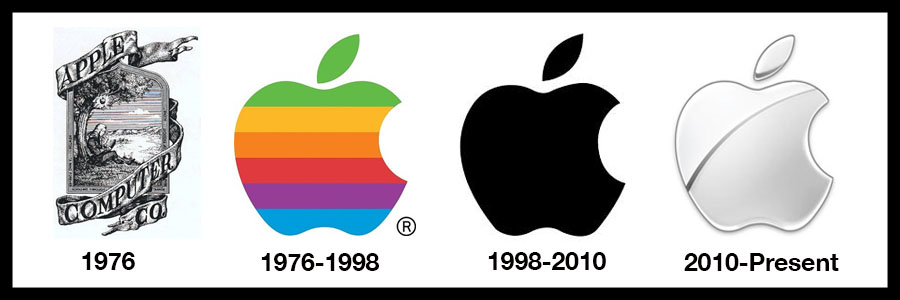What does this brand represent? Most people would say computers, iPhones, iPods: tech devices. But what would Apple say? How about this:
It is not about the devices themselves, it is about resisting drudgery, being empowered, becoming an individual. And not just any individual:
Apple's products do more than simplify tasks, grant access to information, and connect you with others. Sure, these are the common benefits afforded by tech tools. A MacBook or iWatch, though? These provide access to an illustrious list of people who refused to follow the status quo. With Apple's products, we can all fulfill one of our deepest human urges: to give voice to our singular potential and idiosyncratic point of view:
These are all examples of incredibly powerful branding. Full disclosure: I have been an Apple user since I first used the IIe in high school. I like to think I am not as rabidly loyal as other Apple users. I have never queued up outside an Apple store for the latest iPhone. In fact, I use a Samsung. Still, I would be dishonest and deluded if I claimed not to be enchanted by these ads and this brand.
But wait. There's more to this brand. For example, in the last few years, Apple has been at the center of a scandal regarding the working conditions of those building products like the iPhone. In short, workers have faced grueling factory conditions, long hours, and low pay. And just like that, the enchanting brand narrative becomes a whole lot more complex. Exactly what kind of company is Apple? I guess one that cares most about its profit margin. In other words, a typical company.
Now that I have most likely oversimplified a complex issue regarding corporate labor practices without even broaching my own complicity as a first world consumer, I'm going to switch the focus to social media, students, and language that has gained currency in education.
Specifically, I want to address how the term "branding" has been embraced by many educators, as in "students need to think about their personal branding." To be sure, this terminology surfaces in conversations regarding digital citizenship, as in "students should be careful to cultivate their personal brand in a way that makes them appealing to colleges and employers." To cultivate a personal brand is to carefully tailor your appearance, so that your name and your being become synonymous with some defined qualities.
As I consider it further, I am not surprised that this metaphor has caught on. It is the language of capitalism. Since many of us grow up with the sense that capitalism is part of the natural order, it makes sense that its ideas would attach themselves to more than products in the marketplace. But capitalism is no more natural than any economic or political system.
I know I have used this language. But I now realize that I have used it without considering the implications. No longer.
Here are my concerns, in no particular order:
- The point of branding is to obscure the truth, at least some of the time. It is used to sell a version of a product or corporation that might not be completely honest. In fact, Apple illustrates this perfectly, as do many other brands, like McDonalds, Coca-Cola, etc. In short, branding attempts to insulate the company from taking responsibility for its actions. It is a form of distraction, not a statement of authenticity.
- The point of branding is to sell. Yes, we live in a capitalist society; however, as human beings I like to think we have a deeper purpose than selling and buying. When I talk to my students about branding, though, I cannot help but feel that I am reducing my students to consumers and marketers.
- The point of branding is to focus unrelentingly on oneself and one's influence. Yes, students need to consider how they appear to others, whether online or off. But I am starting to wonder if the brand coaching students receive ultimately feeds another term I see more and more: digital narcissism. In his Ted talk, James Nachtwey powerfully states that "every story does not have to sell something. There's also a time to give." When we focus on personal branding, do we undermine discussions about qualities like generosity and kindness, which should be seen as ends in themselves, not as traits to nurture for some kind of payoff?
- The point of branding is to craft a message and then stick to it. But people are complex, certainly more complex than a product or company. I want my students to embrace the complexity of who they are, not shy away from parts of their beings that might compete with the message.
- The point of branding is to gain a competitive edge over competitors. Once again, I know we live in a capitalist society, but I resist using the language of the marketplace to define all aspects of our lives. Yes, I want my students to achieve success. Yes, parts of life require competition. But applying the language of competition to something like identity formation? It seems like a sure way to deny those parts of oneself that fit a prevailing narrative.
- To be branded is to be marked indelibly. See cows and horses for example.

No comments:
Post a Comment